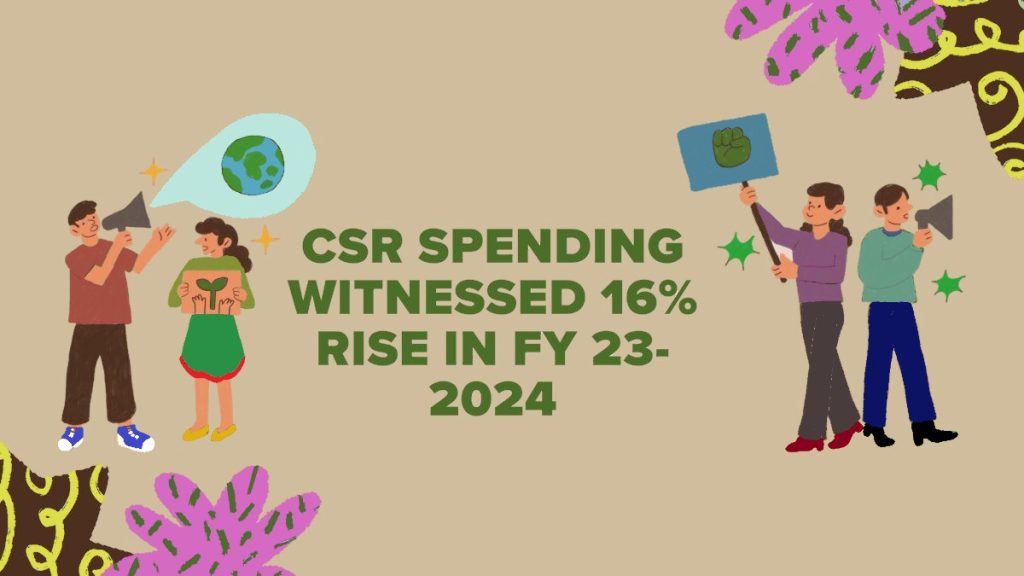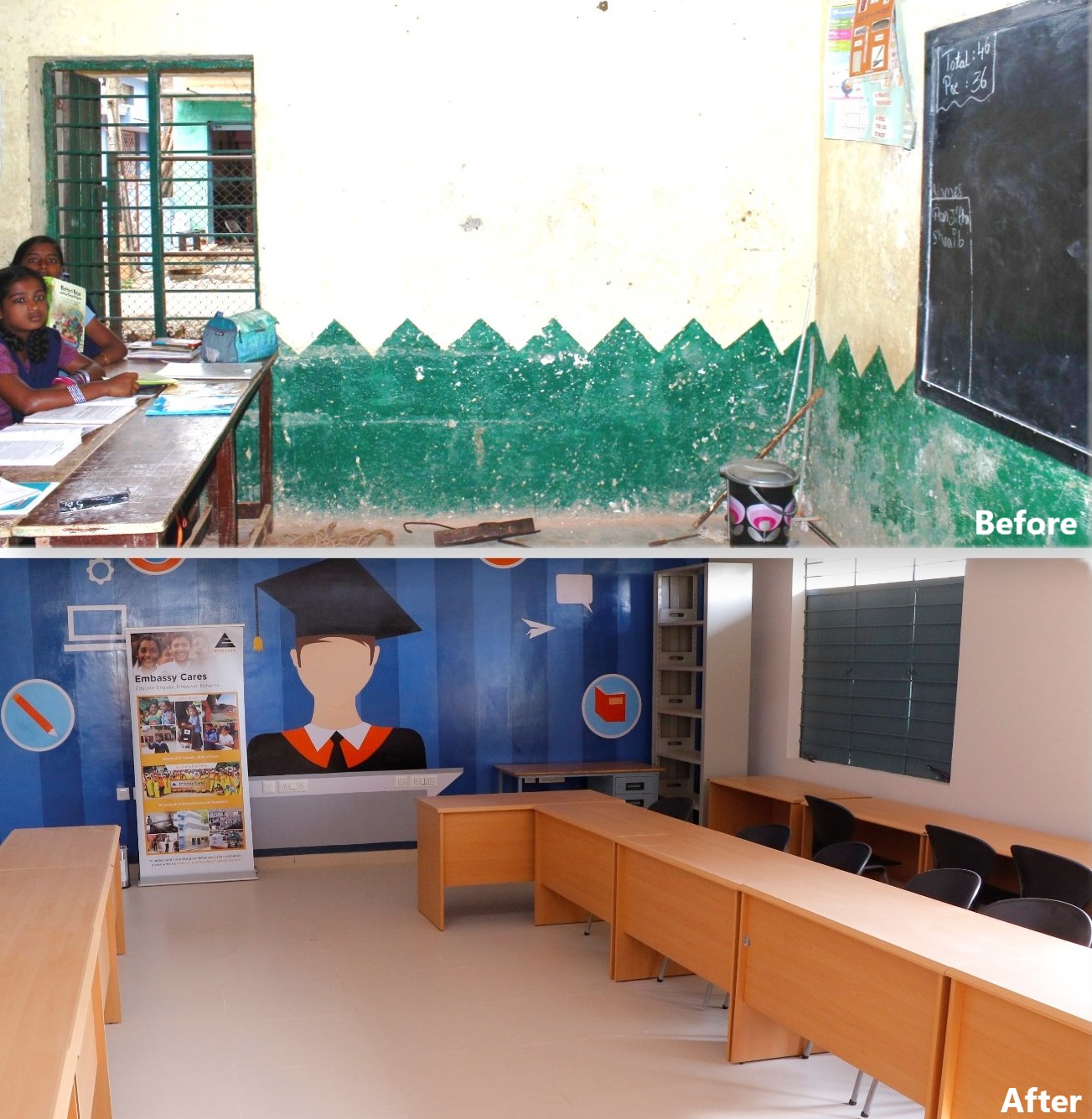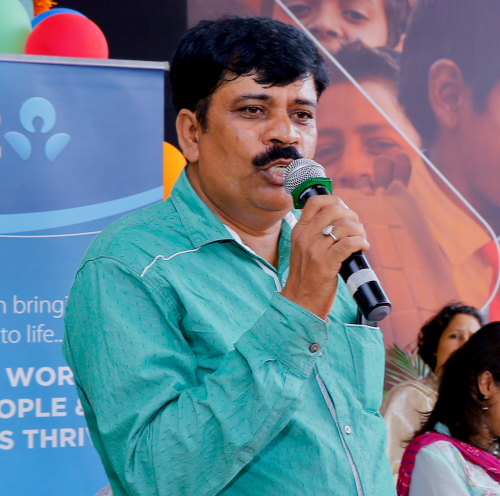
 Shaina Ganapathy is Head of Community Outreach Initiatives at Embassy Group.
Shaina Ganapathy is Head of Community Outreach Initiatives at Embassy Group.
“None of us is as smart as all of us.” This timeless statement, simple yet profound, encapsulates the very essence of collaboration. In today’s deeply interconnected world, it has never been clearer that no single institution, be it government, corporate, or civil society, can resolve the multi-layered challenges that confront us. The path to meaningful progress lies not in isolated action but in partnerships built on shared vision, collective responsibility, and mutual respect.
From Philanthropy to Purpose: Redefining CSR
India’s journey in corporate social responsibility (CSR) offers a fascinating study in transformation. A little more than a decade ago, CSR was largely seen as philanthropy—commendable, but not necessarily strategic. The landmark Companies Act, 2013, changed this paradigm by embedding CSR into corporate governance. For the first time, businesses were formally called upon not only to create shareholder value, but to contribute towards social value.
Social issues are rarely straightforward. Consider a government school struggling with poor infrastructure. A new building alone may not suffice; it may also need trained teachers, access to modern teaching aids, digital tools, healthcare facilities, nutrition programmes, and counselling support. No single organisation, no matter how well-resourced, can simultaneously address all these aspects. This is where partnerships prove transformative. Corporates bring not just funding, but strategic vision, managerial rigour, and the ability to innovate.
 This legislative shift has borne fruit. CSR expenditure by listed companies has steadily grown year after year, with a notable 16 per cent rise in FY24, amounting to ₹17,967 crore, compared with ₹15,524 crore in FY23. Yet, while these numbers are encouraging, they must be viewed against the backdrop of the immense social and developmental challenges India continues to face: disparities in education, fragile healthcare systems, the urgency of sustainable infrastructure, and persistent inequalities in access and opportunity.
This legislative shift has borne fruit. CSR expenditure by listed companies has steadily grown year after year, with a notable 16 per cent rise in FY24, amounting to ₹17,967 crore, compared with ₹15,524 crore in FY23. Yet, while these numbers are encouraging, they must be viewed against the backdrop of the immense social and developmental challenges India continues to face: disparities in education, fragile healthcare systems, the urgency of sustainable infrastructure, and persistent inequalities in access and opportunity.
The reality is unmistakable: CSR can no longer be a series of well-meaning but fragmented projects. It must be integrated into a national development narrative, where corporates, governments, and non-profits combine their distinct strengths to co-create solutions.
Strength in Convergence: Partnerships That Matter
Social issues are rarely straightforward. Consider a government school struggling with poor infrastructure. A new building alone may not suffice; it may also need trained teachers, access to modern teaching aids, digital tools, healthcare facilities, nutrition programmes, and counselling support. No single organisation, no matter how well-resourced, can simultaneously address all these aspects.
This is where partnerships prove transformative. Corporates bring not just funding, but strategic vision, managerial rigour, and the ability to innovate. Non-profits contribute grassroots experience, cultural sensitivity, and deep relationships with local communities. Governments, meanwhile, offer scale, legitimacy, and the policy frameworks needed for sustainability. When these forces converge, the results are greater than the sum of their parts. This creates a force multiplier effect that can accelerate social change at pace and scale.
CSR in India has matured from cheque-writing exercises to strategic programmes designed for deep, systemic impact. Across the country, companies are reimagining their role not merely as benefactors but as partners in nation-building. This shift has led to a focus on ecosystem building, where interventions aim not only to alleviate immediate needs but also to create enabling environments for long-term growth.
What Strong Partnerships Unlock
Resource Optimisation – Scarce funds and efforts are pooled, preventing duplication and ensuring maximum reach.
Diverse Expertise – Interventions become richer and more holistic, drawing from multiple areas of knowledge.
Accountability and Transparency – When multiple stakeholders commit to shared outcomes.
Long-term Sustainability – When impact is owned by a coalition rather than a single entity.
Beyond Cheque Books: Building Ecosystems
 CSR in India has matured from cheque-writing exercises to strategic programmes designed for deep, systemic impact. Across the country, companies are reimagining their role not merely as benefactors but as partners in nation-building. This shift has led to a focus on ecosystem building, where interventions aim not only to alleviate immediate needs but also to create enabling environments for long-term growth.
CSR in India has matured from cheque-writing exercises to strategic programmes designed for deep, systemic impact. Across the country, companies are reimagining their role not merely as benefactors but as partners in nation-building. This shift has led to a focus on ecosystem building, where interventions aim not only to alleviate immediate needs but also to create enabling environments for long-term growth.
In education, for instance, interventions have evolved into comprehensive cradle-to-career models, which ensure that children are not only equipped with foundational skills but are also supported through higher education, vocational training, and employability pathways. This shift reflects an understanding that empowering communities is not about temporary relief, but about unlocking potential over a lifetime.
A striking example is Embassy Group’s Corporate Connect initiative. It transcends the traditional model of a single company adopting a school, instead encouraging multiple corporates to come together in partnership with the Department of Education and local authorities. By collaborating in this way, the programme not only strengthens schools but also builds frameworks that others can replicate. Since 2016, this approach has enabled the completion of hundreds of impactful projects, powered by thousands of employee volunteers, resulting in tangible improvements across education, healthcare, and community infrastructure.
Beyond implementation, partnerships are strengthened through platforms for dialogue and knowledge-sharing. Increasingly, organisations are curating forums that convene government representatives, NGOs, corporate leaders, and sector experts to exchange perspectives and co-create solutions.
Government as Anchor: The Power of Policy
The role of government in partnerships cannot be overstated. Governments set priorities, articulate policy directions, and create the enabling environment in which social interventions can flourish. By aligning with government agendas, CSR initiatives ensure that their efforts are additive rather than duplicative, filling gaps instead of overlapping with existing schemes.
Partnerships with the government are also essential for achieving scale. While corporates may demonstrate success in a few schools or communities, governments can extend such models across entire districts, states, or even the country. Furthermore, association with the government lends legitimacy, helping corporates build trust with communities and other stakeholders.
Corporates with robust government relationships often serve as bridges for other companies, guiding them towards high-impact opportunities. Through ongoing dialogue with officials, they help translate pressing needs into actionable, fundable projects, enabling companies that wish to contribute but lack local knowledge to do so effectively.
The Power of Shared Learning
 Beyond implementation, partnerships are strengthened through platforms for dialogue and knowledge-sharing. Increasingly, organisations are curating forums that convene government representatives, NGOs, corporate leaders, and sector experts to exchange perspectives and co-create solutions.
Beyond implementation, partnerships are strengthened through platforms for dialogue and knowledge-sharing. Increasingly, organisations are curating forums that convene government representatives, NGOs, corporate leaders, and sector experts to exchange perspectives and co-create solutions.
These discussions are not limited to education or healthcare. They extend to pressing issues such as diversity, equity and inclusion (DEI), disability rights, employee volunteering, climate resilience, and child safety. By providing spaces where diverse voices can be heard, such forums foster collective intelligence, helping stakeholders to think systemically and to design interventions that are responsive to complex realities.
From Giving to Growing: Creating Shared Value
One of the most profound shifts in CSR thinking is the move from philanthropy to shared value. Philanthropy is top-down, where resources are given, often with little ongoing engagement. Shared value, in contrast, is co-created. It requires corporates to listen, learn, and engage with communities, to design solutions that draw on local wisdom and leadership.
This co-creation makes interventions more relevant, more dignified, and ultimately more sustainable. Communities are not passive recipients but active stakeholders, shaping the changes that affect their lives. For corporates, this creates not only social goodwill but also stronger, more resilient operating environments. For governments, it ensures that corporate energies are aligned with national and state developmental priorities.
Globally, the United Nations Sustainable Development Goals (SDGs) provide a unifying framework, and India’s CSR efforts are increasingly aligning with these benchmarks. By embedding CSR in this global agenda, corporates harmonise their objectives with universal developmental goals, deepening the impact and ensuring relevance beyond national boundaries.
Hegdenagar’s Renewal: Partnership in Action
 The transformation of schools in Hegdenagar illustrates the power of multi-stakeholder collaboration.
The transformation of schools in Hegdenagar illustrates the power of multi-stakeholder collaboration.
Through a joint effort between Embassy, ANZ Bengaluru, Karnataka’s Department of Education, and Colours of Life (Embassy’s NGO partner), three government schools were revitalised, touching the lives of more than 3,000 children.
 Government Kannada Model Primary School: Twenty-one new classrooms, a library, inclusive washrooms, and dining/play areas were upgraded. Enrollment grew from 450 to over 1,000, with notable improvements in hygiene, attendance, and school pride.
Government Kannada Model Primary School: Twenty-one new classrooms, a library, inclusive washrooms, and dining/play areas were upgraded. Enrollment grew from 450 to over 1,000, with notable improvements in hygiene, attendance, and school pride.
Government Urdu Model Primary School: With 15 new classrooms, a computer laboratory, dining/play space, and upgraded washrooms, student numbers rose from 550 to nearly 1,000.
The testimonies speak volumes:
 “After Embassy adopted our school, attendance and enrolment have improved. Our children feel safer and more eager to learn. We are very grateful,” says Eeramuniyappa, Former Headmaster, Government Kannada Model Primary School.
“After Embassy adopted our school, attendance and enrolment have improved. Our children feel safer and more eager to learn. We are very grateful,” says Eeramuniyappa, Former Headmaster, Government Kannada Model Primary School.
“Previously, the school was unsafe. Now it is fenced, secure, and  dignified. The students feel a sense of pride,” affirms Shabana Akhtar, Assistant Head Teacher, Government Urdu Model Primary School.
dignified. The students feel a sense of pride,” affirms Shabana Akhtar, Assistant Head Teacher, Government Urdu Model Primary School.
These changes are not mere infrastructural upgrades. They represent dignity restored, confidence built, and opportunities expanded for hundreds of children. They stand as a blueprint of what can be achieved when corporates, governments, and non-profits come together with a shared sense of purpose.
Partnerships are not without challenges. Different stakeholders come with different priorities, expectations, and ways of working. Aligning these can be complex and, at times, difficult. As India moves forward, the role of partnerships will only grow. Already, corporates are supporting government schools, building healthcare systems, and contributing to sustainable infrastructure. But the future calls for more: a culture of collaboration, where partnerships are not exceptions but the norm.
Lessons for the Future
The Hegdenagar experience and similar initiatives offer several replicable lessons:
Design for Scale: Ensure government alignment from the outset so that successful models can be replicated widely.
Sustain Engagement: Long-term impact requires ongoing involvement, such as volunteer programmes and forums like Embassy Engage.
Measure and Iterate: Regular monitoring, feedback, and adaptive strategies keep interventions relevant and effective.
Promote Replicability: Sharing frameworks and learnings through networks encourages other organisations to adopt and adapt proven approaches.


The Road Ahead: Building a Culture of Collaboration
 Partnerships are not without challenges. Different stakeholders come with different priorities, expectations, and ways of working. Aligning these can be complex and, at times, difficult. Yet, over the years, corporates, governments, and NGOs have learnt that clarity of vision and flexibility of approach can transform these complexities into opportunities. Experienced implementation partners play a vital role in mediating between stakeholders, ensuring that frameworks are structured yet adaptable.
Partnerships are not without challenges. Different stakeholders come with different priorities, expectations, and ways of working. Aligning these can be complex and, at times, difficult. Yet, over the years, corporates, governments, and NGOs have learnt that clarity of vision and flexibility of approach can transform these complexities into opportunities. Experienced implementation partners play a vital role in mediating between stakeholders, ensuring that frameworks are structured yet adaptable.
As India moves forward, the role of partnerships will only grow. Already, corporates are supporting government schools, building healthcare systems, and contributing to sustainable infrastructure. But the future calls for more: a culture of collaboration, where partnerships are not exceptions but the norm.
Such a culture envisions a society where corporates, governments, and communities work together to build resilience, equity, and inclusivity. It imagines a nation where every stakeholder plays a part in nation-building, not out of obligation, but out of conviction that our destinies are interwoven.
If we can foster this spirit of collaboration, partnerships will not just amplify social change; they will become the very pillars of a stronger, fairer, and more sustainable India.

